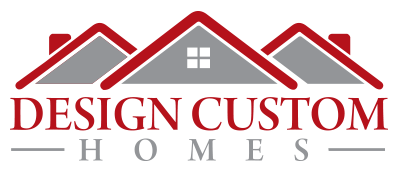Home Remodeling Ideas: Additions
According to Remodeling’s online cost and value report, you can recover most of your investment in a house addition at the time of sale. Building an addition to your home may be a daunting task, but it can turn a house into a dream house you can call your own. Choose additions that are meaningful to you, improve your quality of life and add to the market value of your home.
Planning
Building an addition to your home will be a big investment in your most valuable asset–your home. Careful planning is needed to make it a success. Spend time deciding what additions will work best on your home and calculating the cost before starting. You can become your own general contractor to reduce expenses and stamp your style on your new home, or you can hire an expert like Design Custom Homes and let them take the worry and stress out of building for you. You can buy ready-made plans online and adapt them to your home, or design your own plans and ask an experienced contractor or architect to approve them. When pricing jobs you can’t do yourself, ask for several quotes before choosing a contractor. Think about the use you will give your new addition before you start building, and consider how much space you will need. Remember that new living space will need heating, ventilation and air-conditioning; your current heating and cooling system might need an upgrade.
Creating Space
Create new space for your home with your home addition. The square footage of your home is one of the most important factors that determines its selling price. If you add extra living space to your home, you will automatically boost its market value. Build outward by adding a sunroom, a new kitchen or a grand new master suite, which will add to your square footage, or a garage or porch–not considered part of the square footage of the home when it comes time to sell, but valuable additions nonetheless. Build upward by adding a second level to your one-story home, or building a guestroom above your garage. Building outward makes sense for homeowners with a lot of land. It also means you can continue to live in your home while you work, and you don’t have to worry about existing structures. Building upward is a better choice for homeowners who can’t afford to lose yard space. You will also save time and money you would have spent on building a new foundation. However, it will mean sections of your home will be without a roof while you build, and you will have to leave your home while work is in progress.
Advantages
Building a home addition is cheaper than buying a new home that includes the additional living space you want. Just the closing costs of the mortgage you would need for a new home would cost three percent of the house’s sale price. You can buy a lot of space and comfort by just investing three percent of your home’s value in a home addition. When building an addition, you can let out all your creativity, and build the home you want. You are not restricted by the existing building or the previous owner’s taste in decoration. Adding new living space is an investment that increases the value of your home.
Tips
Familiarize yourself with the building codes of your area. If you have moved from another state or town, don’t assume you know what the law requires. Buy materials for your addition in bulk to reduce costs. Build additions with dual purposes to maximize on your investment. For example, If you build a new sunroom, design it so it can double up as an office or a guestroom. If you add a new room, think about storage space in the planning stages. For instance, add a bay window with a wide windowsill and a hidden storage compartment below. It can also be used as extra seating. Think about using prefabricated modular construction to reduce building time and costs.
Warnings
Although a home addition can be a good investment, you may not recover all the money you invested when you sell. It all depends on what the housing market is like when you decide to sell. Additions also come with added costs, even after the construction work has finished. You will have to account for the extra heating and cooling expenses. A larger home can also increase your property taxes. And don’t forget the emotional cost and inconvenience of having a construction crew making a noise and dirtying your lovely home.
About the Author:
 Andrew Latham is a seasoned copywriter for both print and online publishers. He has a Bachelor of Science, majoring in English, a diploma in linguistics and a special interest in finance, science, languages and travel. He is the owner of LanguageVox.com, a company based in Charlottesville, Virginia, which provides writing, interpreting and translating services for English and Spanish audiences.
Andrew Latham is a seasoned copywriter for both print and online publishers. He has a Bachelor of Science, majoring in English, a diploma in linguistics and a special interest in finance, science, languages and travel. He is the owner of LanguageVox.com, a company based in Charlottesville, Virginia, which provides writing, interpreting and translating services for English and Spanish audiences.
Photo Credits: Porch Hammock image by Andrew Kazmierski from Fotolia.com
